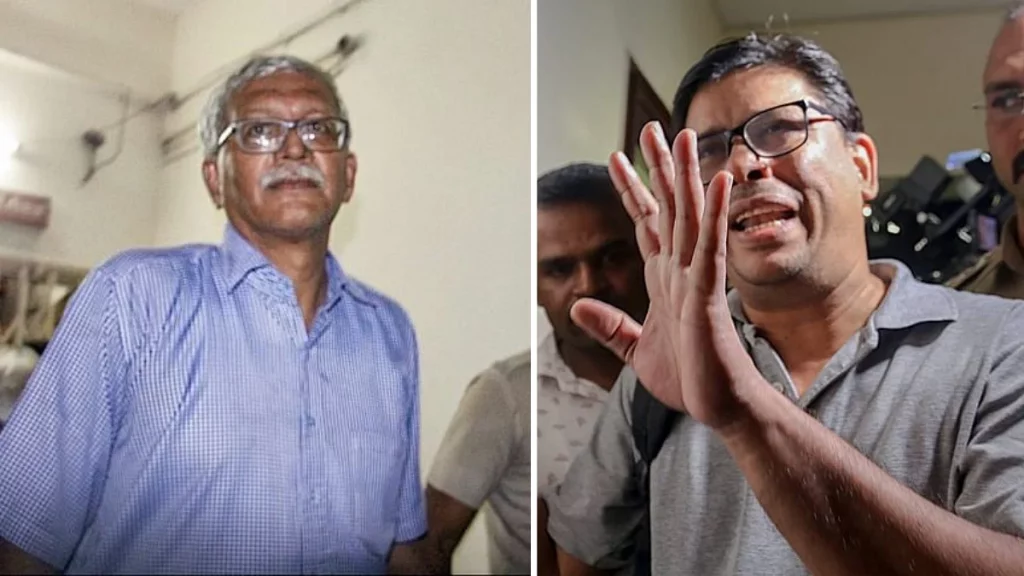Many disturbing questions arise out of the Supreme Court order granting bail to activists Vernon Gonsalves and Arun Ferreira in the Bhima Koregaon violence case in which several activists and lawyers were arrested in 2018 on the charge of being part of a Maoist conspiracy. There has been suspicion that the whole case was engineered to throttle free speech and spread terror among people by brandishing the stringent anti-terrorism law, the Unlawful Activities Prevention Act (UAPA.) A new term – urban Naxalite – was coined by right-wing forces to demonise such activists and advocates of free speech. The government machinery was deployed, armed with the draconian UAPA, to incarcerate government critics so that they languished in prison for years on end and thereby break the backbone of protests.
But, the SC order granting bail to the two accused tends to emphasise the fact that denial of bail should not be the norm. This is because mere preliminary assessment may expose the weaknesses of a case filed under UAPA. The law is open to be abused since it is extremely difficult – well nigh impossible – to get bail once its serious provisions are slapped on an accused. Under Section 43D(5) of the Act, no court can grant bail if there are reasonable grounds to believe the accusation is true. What is more, an apex court judgment in 2019 has ruled there cannot be a detailed analysis of the evidence at the bail stage and bail must be decided only on the “broad probabilities” of the case.
The legal position being that, it is, indeed, remarkable that the Supreme Court has now granted bail to Gonsalves and Ferreira on merits. The Court’s analysis is revealing. While there was no credible evidence that the accused were part of a conspiracy, the Court has found that even the letters, in which their names figured, contained only third-party responses and none was recovered from them. What strengthens the cause of liberal thinking is the ruling that “mere participation in seminars by itself cannot constitute an offence under the bail-restricting Sections of the UAPA, with which they have been charged.”
The significance of the bail accorded by the court is that this is the first time in the Bhima Koregaon violence case that a court has recorded a finding that the accusations may not be true. This may have far-reaching consequences. By slapping UAPA on an accused the investigation agencies and the government more often than not tend to send the message across that they have strong evidence to buttress their case, while in reality the material they have on hand turns out to be too weak to prove one guilty. The bail granted to some other accused in the Bhima Koregaon case seems to point to the inescapable conclusion that the UAPA often becomes a tool to torture free thinkers and government critics into silence. For example, among those arrested in this case, lawyer Sudha Bharadwaj was released on “default bail”, since the charge sheet could not be filed within the stipulated time. This only strengthens suspicion that there was no case against her at all. Telugu poet Varavara Rao got the benefit of bail on medical grounds. Writer and scholar Anand Teltumbde was released by the Bombay High Court which came to the conclusion that there was no solid evidence that he had received funds from a co-accused, as claimed by the police. The most tragic case was that of Jesuit Father Stan Swamy who was suffering from Parkinson’s disease and died while in custody at the age of 84. The disease incapacitated him, yet the jail authorities did not allow him even to drink with a straw or sipper until there was a nation-wide outcry against the inhumanity.
The NIA had relied on letters and witness statements to claim that Gonsalves and Ferreira were part of a conspiracy and recruitment of persons to commit terrorist acts. But, the Bench of Justices Aniruddha Bose and Sudhanshu Dhulia found the evidence too weak. This only shows exaggerated and malafide claims by the prosecution in this case cannot bear judicial scrutiny. On top of it, there are reasons to suspect that some of the purported evidence may have been remotely planted on computers used by the accused. The revelation of the government’s buying of the Israeli spyware, Pegasus, shows such manipulation of evidence is in the realm of possibility.
The latest bail calls for a review of the mindless application of UAPA in general and a re-assessment of the Bhima Koregaon case in particular.
